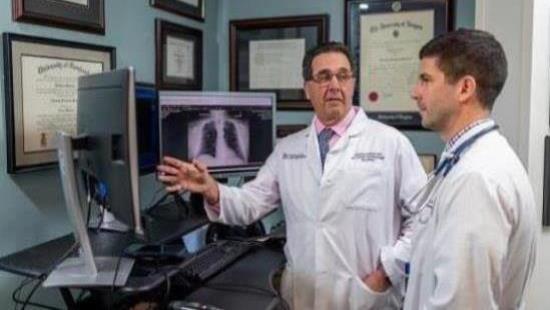Heart Care
Arrhythmia

An arrhythmia is an irregular or abnormal heartbeat. An arrhythmia can feel as if the heart is skipping a beat, jumping or racing.
Heart palpitations, or irregular heartbeats, can range from benign to very serious. They can also be accompanied by shortness of breath, sweating, lightheadedness or even passing out. A fast heartbeat is called tachycardia.
The most common irregular rhythm is atrial fibrillation, which causes poor blood flow. The most dangerous is ventricular tachycardia, which can be fatal.
Diagnosing Arrhythmia
Electrophysiology (EP) is the study of irregular heartbeats and the electrical system of the heart. Our specialists offer patients the latest in diagnostic technology and expertise in the treatment of arrhythmia. Our electrophysiologists are physicians who are specially trained to identify heart arrhythmia and irregularities in the heart rhythm.
In addition to performing tests that measure the electrical impulses in the heart, the physician may order a heart monitor called a Zio monitor, which the patient will wear from two weeks to two months.
This very small, specialized monitor evaluates heart rhythm all day and night, the patient is active and at rest, to pick up on any irregularities and abnormalities.
Treating Heart Arrhythmia
Treatments for arrhythmia may include:
- Avoiding caffeine and stimulants
- Medications that help regulate the heartbeat
- An implantable device such as a pacemaker or a defibrillator, which regulates the heartbeat by giving small electrical impulses to "shock" the heart back into a regular rhythm.
- Cardioversion, which treats some rapid heartbeats by delivering mild electrical shocks. This treatment differs from a defibrillator or pacemaker as it is performed in the doctor's office on an outpatient basis. The low-energy shock resets the heart's normal rhythm. This non-invasive procedure may need to be repeated one or more times.
- Bypass surgery
